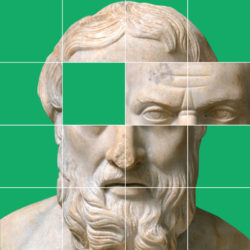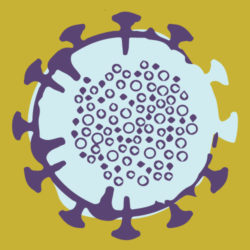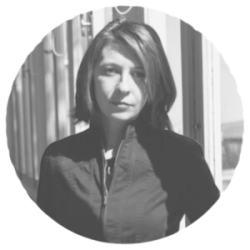The Infodemic: From the White House to Madagascar, global leaders’ search for cures spreads misinformation
Welcome back and welcome to those of you joining for the first time. We’re tracking the global spread of coronavirus disinformation, and what is being done to combat it.
Below you’ll find a few narratives – real and fake – that have grabbed our attention.
Leading the global infodemic is Donald Trump with his suggestion that injecting disinfectant may cure coronavirus. Some of us woke up to the denouncements of the statement, millions woke up to this:
- “DID EVERYONE GET THE PRESIDENT’S MESSAGE TONIGHT?” wrote a Facebook user on the notorious far-right conspiracy group QAnon, which has 86,000 members posting around 3,000 times a day. Many of them have been suggesting drinking bleach as a treatment for the past month.
- It wasn’t just Qanon: “His words made me literally jump up in excitement” said an Instagram post by a user called “the healthypractitioner.”
- In Russia, media reacted respectfully: “Killed in a minute — Trump names the coronavirus killer” read the Sputnik headline; “Trump reveals the way to eradicate Covid-19,” said another major Russian language news site.
- Breibart said they fact checked reports that claimed Trump suggested injecting people with disinfectant and found them to be FALSE. Anyone reading past the Breibart headline would be confused to stumble upon a video of Trump actually suggesting injecting people with the disinfectant.
Reminder: We reported last month that several people were hospitalized in Nigeria and a man died in Arizona after injecting chloroquine following another Donald Trump briefing during which he promoted hydroxychloroquine, the anti-malaria drug that has since been largely discredited as a Covid-19 remedy.
Useful Context: In the United Kingdom, the media regulatory body Ofcom is now doing weekly surveys of Covid-19 news consumption. Their last report found two things dominate the infodemic: the anti-5G conspiracy theories (you’ll find plenty of background here) and news on fake cures. Both spread fastest when promoted by celebrities and leaders. And there is no shortage of leaders doing their bit for global conspiracy theories. Keep reading to find out more.
In Brazil, President Jair Bolsonaro continues to follow in Donald Trump’s footsteps. Like Trump, he has heavily promoted the use of hydroxychloroquine.
- Last week, he fired his health minister, whose recommendations he had repeatedly contradicted in his public statements. His replacement, Nelson Teich, has been careful to flatter the president with statements like “Fortunately, despite all the problems, the handling [of the coronavirus crisis] has been perfect so far.”
- Yesterday, Bolsonaro publicly attacked the director general of the WHO (another favorite Trump target), declaring that he was unqualified for his position. “He’s not a doctor. Did you know this?” he said in a press conference. (The director, Tedros Adhanom Ghebreyesus, is not a medical doctor but is a renowned malaria researcher and the former health minister of Ethiopia.)
Update: Politically, Bolsonaro is growing increasingly isolated. Justice minister Sergio Moro resigned this morning over a conflict with Bolsonaro regarding his firing the head of the Federal Police. Moro, a former judge, is seen as a hero by the right for his role in the jailing of former leftist president Lula da Silva.
Bolsonaro’s new stimulus package indicates he is shutting out his Economy Minister Paulo Guedes, a “Chicago” economist and Milton Friedman acolyte whose hardline privatization agenda was crucial to Bolsonaro gaining support from the Brazilian business community. “Where’s Paulo Guedes?” asked the headline of an op-ed by Thomas Traumann, author of a book on Brazilian finance ministers.
Madagascar’s President Andry Rajoelina joins Trump in the dubious cure marketing business.
- In a recent televised speech President Rajoelina said a plant in Madagascar called Artemisia could cure coronavirus.
- He punctuated his statement by gulping down a bottle of Artemisia tea. He also announced the creation of a Covid-organics remedy that will be distributed for a very low price. Rajoelina later tweeted that the Artemisia cure will “change the course of history” for Madagascar.
- Meanwhile the Committee to Protect Journalists called on Rajoelina’s government to release journalist Arphine Helisoa, who was jailed after calling the president a “killer” for his handling of Covid-19 response.
The trend of fake news legislation being used to crackdown on journalists and a free press is clearly spreading. In Algeria the government is about to criminalize the spread of fake news, and in Cambodia dozens of people had been arrested for allegedly spreading fake news.
Coda’s Chaewon Chung has been looking into the details, so read on.
SPOTLIGHT: CAMBODIA ᛫ by Chaewon Chung
Like many authoritarian leaders around the world, Cambodia’s strongman Prime Minister Hun Sen is using Covid-19 and fake news as excuses to crack down.
“The Cambodian authorities have been engaged in a ruthless campaign against the free and independent media for the past three years, and they are now manipulating the Covid-19 crisis to further this relentless suppression of freedom of expression,” an Amnesty International spokesperson told me in an email.
More than forty people have been arrested since January for spreading fake news, including journalists, supporters of an opposition political party, and a 14-year-old girl who wrote a social media post about being worried that three of her classmates had caught Covid-19.
There is also the case of a gas station worker, Lek Siengly, who posted a live video online that criticized the government for banning citizens from gathering and traveling. Charged with “incitement to commit felony,” he faces six months in prison and a fine up to about $980 if found guilty.
Cambodia reports 122 cases and zero deaths. Many are worried these numbers reflect a lack of testing, and a government cover up.
“Right now, there’s a great deal of fear because people don’t know how widespread Covid-19 is,” said Phil Robertson, deputy Asia director of Human Rights Watch. “The Cambodian government is flying blind without the appropriate testing.”
“Hun Sen is worried that people would get angry and start blaming the government,” continued Robertson. “So he is very keen to have all the powers in his hand in case he needs to use it. And that includes rights of using power to basically suspend all civil and political liberties, to seize property, to intercept telecommunications, to restrict movement.”
Hungry for more?
- This seems like an appropriate date to introduce you to yet more coronavirus-era political leaders who have no time for science
- And for a break from Covid-19, here’s a great visual piece in our Authoritarian Tech channel looking at the history of artificial intelligence.
- And, if you haven’t seen it yet, this TikTok video investigation is not to be missed.
Have a good weekend, and don’t mix bleach into your drinks, at least not until science says you should.
Natalia
P.S. It takes a village: Coda’s Isobel Cockerell has been hanging out with conspiracy theorists online, Gautama Mehta dug into his favorite subject: Brazil and Ariam Alula is the one following the Covid Organic story in Madagascar.








